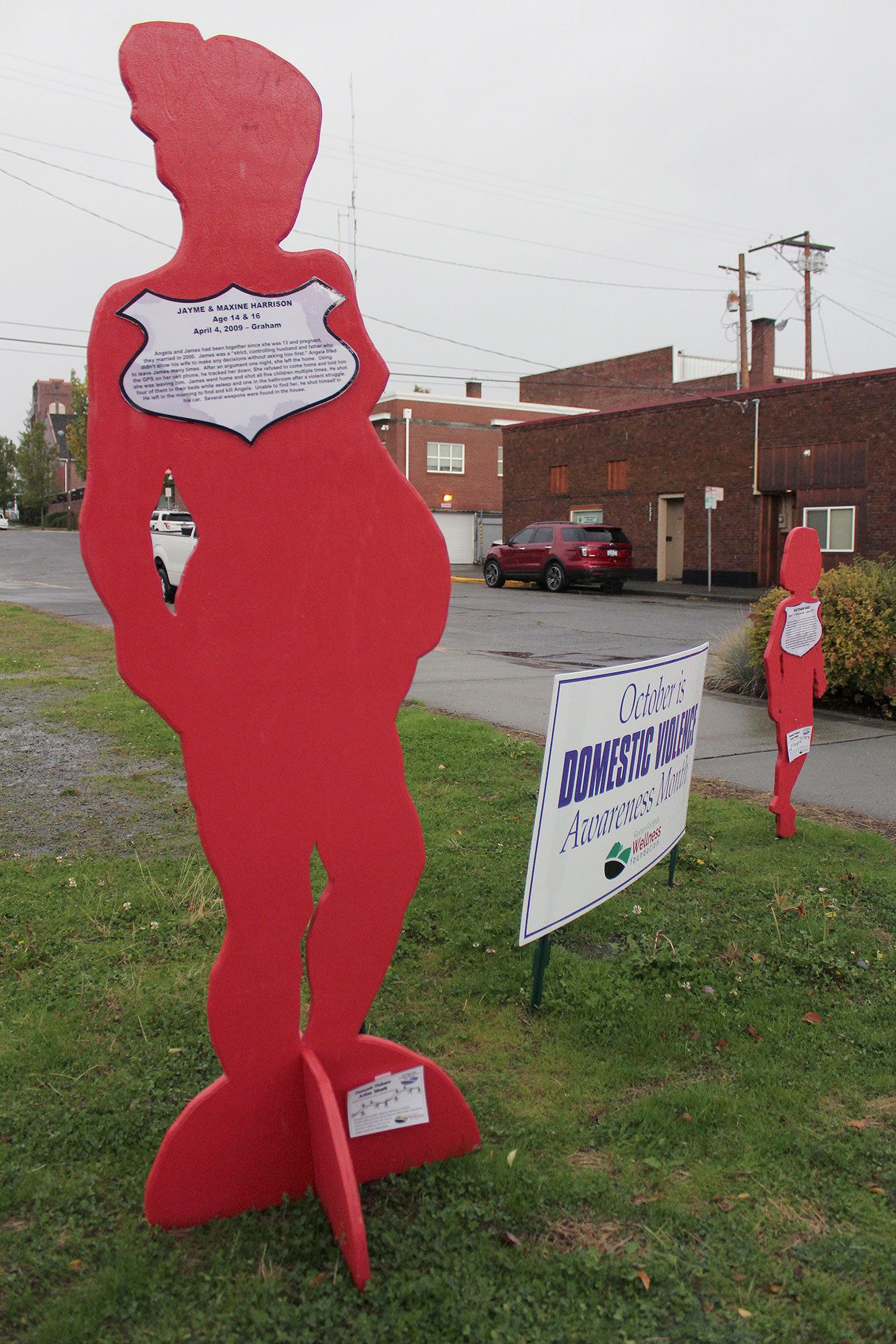Editor’s Note: This is the second installment of two. Part one detailed the stories of domestic abuse survivors. Part two provides a look into domestic violence from a police perspective and provides more information on resources available for victims and survivors.
Part one of the domestic violence series provided an in-depth look at stories from victims who have dealt with domestic violence. The stories had a few things in common, including that the victims stayed with their abuser for years.
This raises the questions of how victims can get out of a domestic violence situation.
While domestic violence situations differ from case to case, the number one thing co-founder of Covington’s Domestic Violence Task Force, Victoria Throm, wants people to know is that they have a lot of options. While it may not seem like it in most cases, there are ways to get out of domestic violence situations.
An immediate solution is to call the police, Covington Chief of Police Andrew McCurdy wrote in an email.
“If you fear for your safety, get out and call 911,” McCurdy said. “It is not worth it to stay and argue when your life is in danger. I would rather send an officer to mediate a dispute before someone gets hurt.”
According to Bonney Lake Police Officer Daron Wolschleger, a police officer’s main responsibility when they get a domestic violence call is to make sure everyone is safe, he said.
That’s why, if officers are called to a home within four hours of a domestic assault, officers are mandated by state law to arrest the primary physical aggressor, Wolschleger said.
Restraining orders are also an option for people, but at the end of the day, a restraining order is just a piece of paper.
“I always tell people that an order is just a piece of paper so they should take steps to protect themselves because sometimes these orders can anger or incite the respondent,” McCurdy said.
Restraining orders are taken very seriously. If the person with the restraining order violates the terms, they will be arrested.
Restraining orders often get extended, unless the victim will come and talk about why they want it lifted, Deputy City Attorney for Bonney Lake, Maili Barber, said.
“In that situation, the judge is going to inquire whether that is really good for [them],” Barber said.
While calling the police is option, victims sometimes hesitate to contact the police, McCurdy said.
“[Victims] are afraid of what will happen to them and their loved ones,” McCurdy said. “We try to be sensitive to these concerns and do what is best for the specific situation while still meeting our legal requirements.”
Victims tend to also be afraid of being victims of domestic violence, Wolschleger said. Wolschleger has had men say their wife physically assaults them all the time but they don’t want to be a victim of domestic violence because they don’t want their friends to know their wife assaulted them.
Women also don’t want to be victims of domestic violence but sometimes they feel like they don’t have another option.
“A lot of times they are stay at home moms and maybe they feel like they have no other option,” Wolschleger said. “If she leaves the man, where is going to go? Is she going to be on the streets?”
Victims can feel like they don’t have another choice but to stay. Sometimes they don’t have a job or a place to go and if they have kids, sometimes they have no other way to support their kids but to stay with their abuser who provides the necessities they need, Wolschleger said.
“It’s hard to tell a woman you have to pack up your kids and try to go live in a shelter,” Wolschleger said. “Who wants to do that?”
Police will always give victims resources and try to help them find a way out.
These situations are far more complex than most of us realize. It is easy to tell someone to just get out of a relationship but it is rarely an easy thing to do, McCurdy said. Everyone deserves to feel safe and everyone deserves to be treated with dignity and respect, McCurdy said. McCurdy encourages people who are unsafe or unhappy in a relationship, to reach out for help before it becomes violent.
It’s not just the victim who has options of how to get out of a domestic violence situation. Friends and family of a victim also have options of how to help them. Taking action as an outsider or a victim, as soon as possible, is the best thing anyone can do to keep them safe.
As far as helping someone you know is in a domestic violence situation, it’s as simple as offering support without criticism, Throm said.
“This can be as simple as giving someone a ride or letting them use the phone,” Throm said in an email. “Small acts of kindness can make a difference, let them know it’s not their fault and that they are not alone.”
Other ways to help include:
• Don’t be afraid to let them know you are concerned for their safety and tell them about domestic violence resources in their community.
• Help them develop a plan to stay safe and keep their children safe.
• Encourage them to stay connected to friends and family.
• Be nonjudgmental and respect their decisions concerning their relationship.
• Avoid confrontations. There are many reasons why individuals experiencing abuse don’t reach out to family and friends.
• Ask how you can be helpful. Don’t try to make any decisions for your friend because it implies that you think they can’t make good choices.
“Let them know it’s not their fault and they are not alone,” Throm said.
While the reason why someone stays is different in every situation, it is very important to let someone in a domestic violence situation know they have many options to help them get out.


